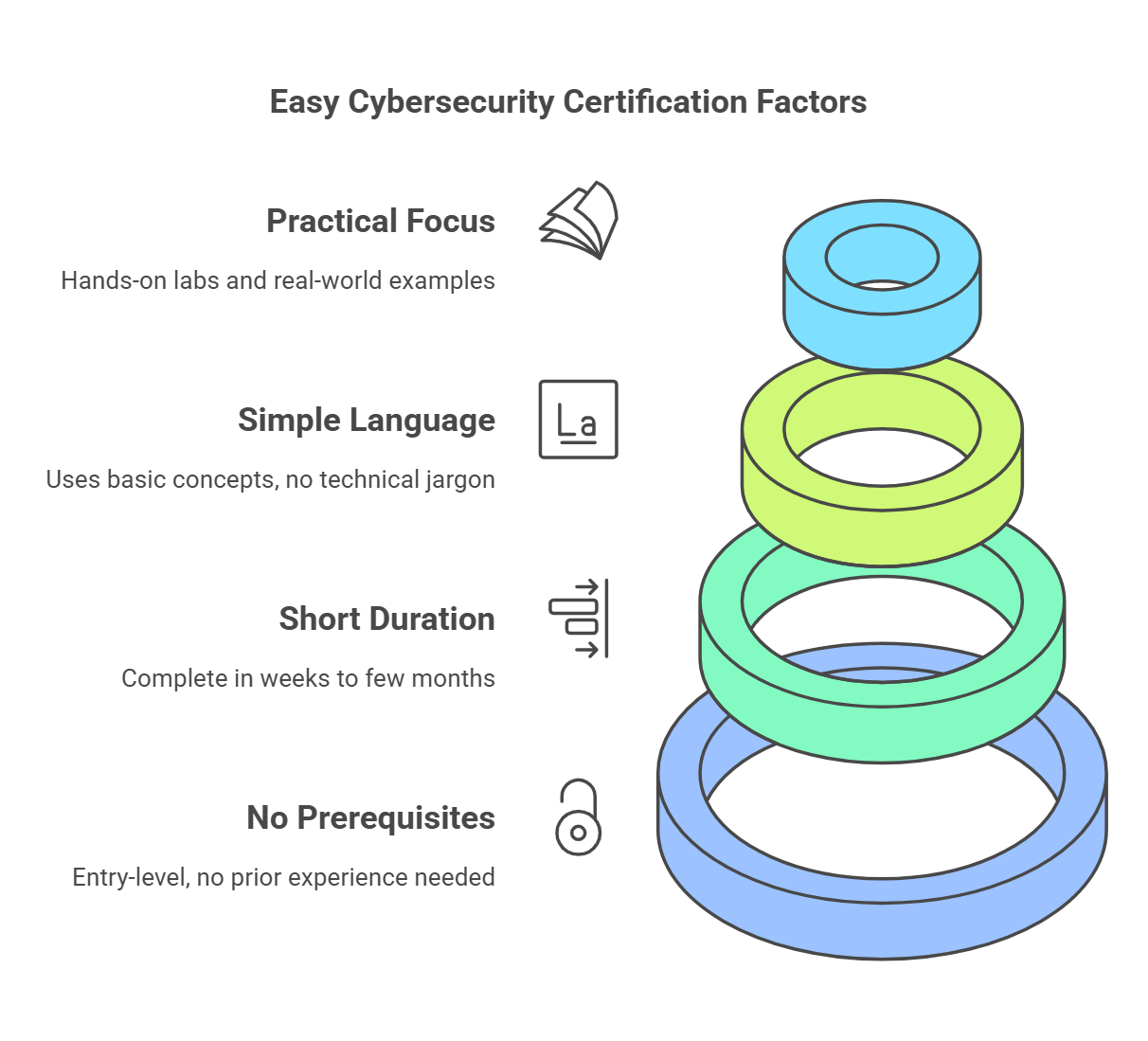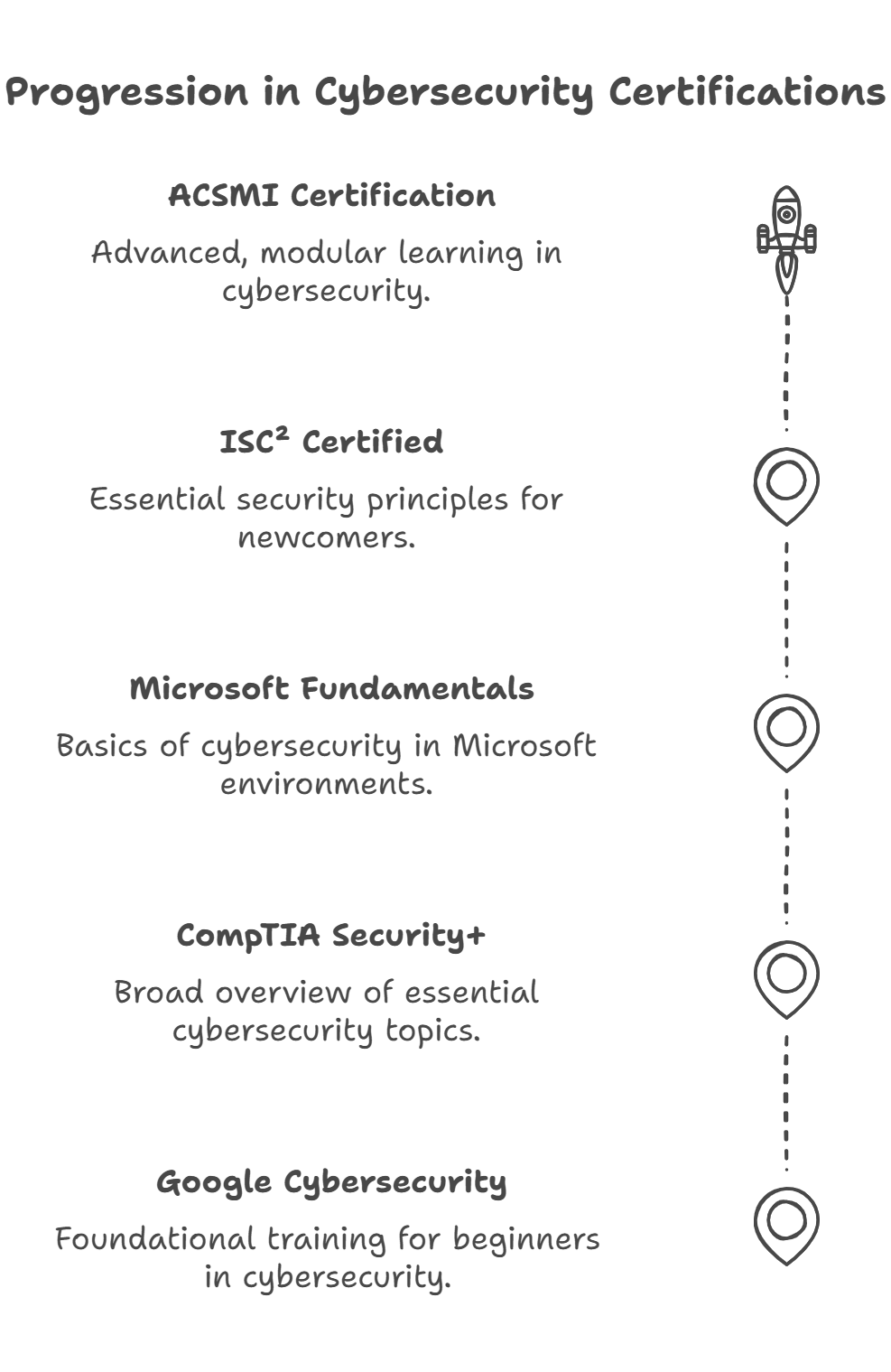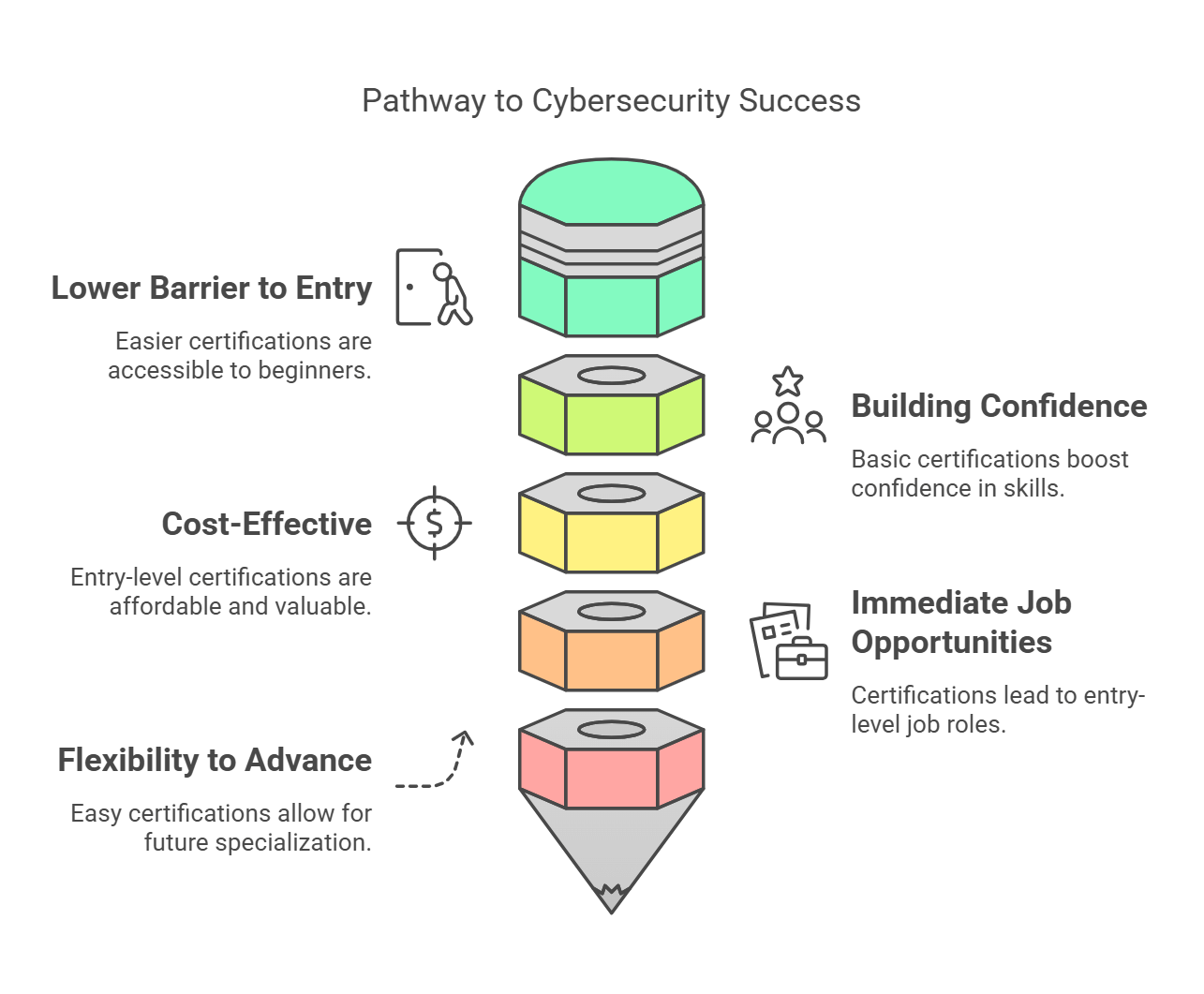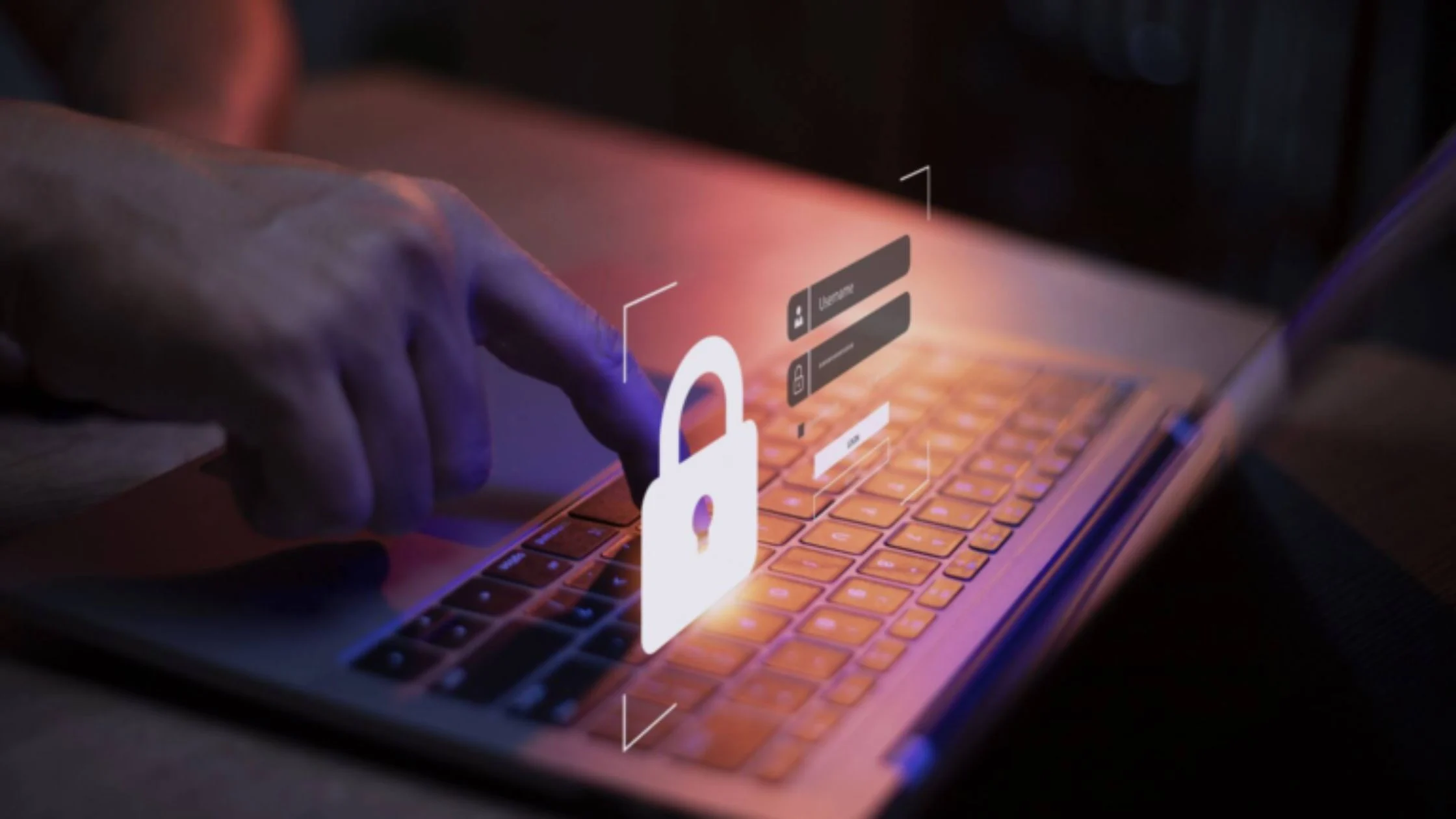Table of Contents
- What Makes a Cybersecurity Certification “Easy”?
- 1. No Prerequisite Experience
- 2. Shorter Completion Time
- 3. Minimal Technical Jargon
- 4. Practical Application Focus
- List of the Easiest Cybersecurity Certifications
- Benefits of Choosing the Easiest Cybersecurity Certification
- How to Choose the Easiest Cybersecurity Certification for You
- Career Options After Easiest Cybersecurity Certifications
- Final Thoughts
- FAQs About the Easiest Cybersecurity Certification
Easiest Cybersecurity Certification for Your Career: A Complete Guide
In the fast-evolving world of cybersecurity, professionals with the right skills are in high demand. The field offers a wide array of opportunities, from securing data to defending systems against sophisticated cyber-attacks. However, many aspiring cybersecurity professionals hesitate to pursue certifications due to misconceptions about their difficulty. While some certifications are indeed advanced and challenging, several easier certifications provide a clear path to entering the field without overwhelming technical knowledge.
This guide to the cybersecurity certification for Beginners will help you discover beginner-friendly options that are both valuable and straightforward, allowing you to build a strong foundation in cybersecurity. Whether you’re just starting your IT career or seeking to specialize in cybersecurity, certifications are critical for validating your skills and advancing in this thriving industry. With many career paths to explore, it’s crucial to know which certifications will give you the best ROI, and we’ll help you navigate the landscape of entry-level certifications and outline the next steps toward more advanced credentials like the ACSMI Certification.
What Makes a Cybersecurity Certification “Easy”?
When it comes to the easiest cybersecurity certification, several factors could be taken into consideration. An easy certification can be described as being easily obtainable, simple, and important in the real world, especially for beginners. Here are some key factors that could make a certification to be considered easy:

1. No Prerequisite Experience
A major plus of entry-level certifications is that they do not necessitate prior technical experience. There are many certifications that are designed for individuals with no or very little IT background. Take examples of certifications like Google Cybersecurity Certificate and CompTIA Security+ that don’t need much technical knowledge and instead focus on introducing you to basic cybersecurity concepts. That’s because they are easy to get for anyone new to the field.
2. Shorter Completion Time
A shorter duration is typically a beginner-friendly certification. They can be done within weeks or months, this is less than the time it might take to fully master advanced certifications. Some entries, like CompTIA Security+, can be done in 4 to 12 weeks, while others, like the self-paced Google Cybersecurity Certificate, can be done in 4 to 6 months.
3. Minimal Technical Jargon
For example, easier certifications focus more on the understanding of basic concepts rather than on the depth of the knowledge, which is not always accompanied by a comprehensive understanding of the particular area. Many beginners prefer certifications that use simple language and impractical knowledge that does not overwhelm candidates with a lot of technical jargon. That enables people who are relatively new to IT to get started quickly.
4. Practical Application Focus
Certifications that are based on hands-on labs and real-life examples seem to be easier to digest because they offer an applied learning experience. In general, beginners learn that certifications with practical, scenario-based training are more fun and easier to digest. The hands-on approach makes it easier to retain the information relevant to the actual job responsibilities.
List of the Easiest Cybersecurity Certifications
Here’s a breakdown of some of the easiest cybersecurity certifications to get started with, without overwhelming beginners with technical complexity. These certifications are all highly regarded in the industry and are an excellent foundation to start a career in cybersecurity.

1. Google Cybersecurity Certificate
For those starting from scratch, the Google Cybersecurity Certificate is an excellent option. It covers absolute beginners and provides foundational training in threat detection, risk assessment, and incident response. This Cybersecurity Certification Entry Level course is self-paced, perfect for the professional who needs that flexibility. There are no prerequisites, so anyone can do it, regardless of how much IT experience you have. The length of time it takes to complete is 4 to 6 months on average, and it covers topics such as network security, cloud security, and data protection. This certification will arm you with the basic knowledge you need to get started in your cybersecurity career.
2. CompTIA Security+
Widely regarded as the go-to certification for entry-level cybersecurity professionals, CompTIA Security+ covers a broad array of essential cybersecurity topics. From network security to cryptography and compliance needs, this certification provides a solid overview of the core concepts that any cybersecurity professional should understand.
The vendor-neutral nature of Security+ makes it a versatile certification, offering knowledge applicable across different technologies and platforms. This is an excellent certification for individuals who want a broad understanding of cybersecurity best practices. It’s also fairly quick to obtain, with an estimated study time of 4 to 12 weeks, depending on your prior experience and study pace.
3. Microsoft Cybersecurity Fundamentals
The Microsoft Cybersecurity Fundamentals certification is designed to help beginners understand the basics of cybersecurity, including topics like identity protection, threat detection, and risk management. This certification is ideal for individuals interested in pursuing roles that focus on managing security in Microsoft environments.
The exam is designed for people who are completely new to IT, making it one of the more approachable certifications for individuals with limited technical experience. It serves as a stepping stone toward more advanced Microsoft certifications, such as the Microsoft Certified: Security, Compliance, and Identity Fundamentals.
4. ISC² Certified in Cybersecurity (CC)
ISC² is one of the leading certification bodies for cybersecurity, and its Certified in Cybersecurity (CC) is an excellent option for newcomers. This certification covers essential concepts such as security principles, threats and vulnerabilities, and network security. The certification exam uses an adaptive process to test candidates, but the focus remains on key cybersecurity principles rather than complex, technical details.
This certification provides a great entry point for individuals looking to specialize in security management and general security practices. It is also a relatively quick certification to obtain, with flexible study options available.
5. ACSMI Certification
While ACSMI Certification is more advanced than the beginner certifications listed above, it still deserves mention due to its modular learning approach and flexibility. The ACSMI certification offers a structured learning path that progresses from fundamental cybersecurity knowledge to more advanced concepts.
With over 400 modules, ACSMI provides a comprehensive learning experience. Even though it covers complex topics, it is structured to be approachable for people at various stages of their careers. It’s particularly beneficial for those who wish to continue their education after completing entry-level certifications like CompTIA Security+.
Benefits of Choosing the Easiest Cybersecurity Certification
Many professionals underestimate the value of starting with easier certifications in cybersecurity. Here are several reasons why opting for these certifications can benefit your career:

1. Lower Barrier to Entry
Certifications like Google Cybersecurity Certificate and CompTIA Security+ lower the barrier to entry for individuals looking to break into the cybersecurity field. These certifications provide structured, accessible learning, allowing you to gain critical skills without needing a technical background.
2. Building Confidence
Starting with the easiest certifications helps you build confidence. Learning the basics at a comfortable pace ensures you understand the core concepts, which will be crucial as you progress into more specialized and complex certifications. This boost in confidence is essential for tackling intermediate and advanced programs down the line.
3. Cost-Effective
Compared to advanced certifications, entry-level programs like Google’s Cybersecurity Certificate and CompTIA Security+ are more affordable, making them a cost-effective choice. Most entry-level certifications cost less than $500, and they offer a high return on investment by significantly boosting your employability.
4. Immediate Job Opportunities
Once you have obtained an easy certification like Google’s Cybersecurity Certificate or Security+, you can start applying for entry-level cybersecurity jobs. Many employers look for these certifications as a way to verify that candidates possess the foundational skills needed for roles such as Security Analyst, Help Desk Technician, or IT Support Specialist.
5. Flexibility to Advance
Starting with an easier certification provides you with the flexibility to transition to more advanced certifications as your skills develop. With a solid foundation in cybersecurity basics, you can easily move on to specialized programs like ACSMI or CISSP once you feel comfortable.
How to Choose the Easiest Cybersecurity Certification for You
Choosing the easiest certification depends on your career goals, available time, and budget. Here’s how to find the best option for you:
1. What’s Your Level of IT Knowledge?
If you’re entirely new to IT, beginner certifications like Google Cybersecurity Certificate and CompTIA Security+ are perfect for you. They provide foundational knowledge without requiring any prior technical experience. If you have some basic IT experience, you might consider slightly more advanced certifications like CEH or ISC²’s Certified in Cybersecurity (CC).
2. How Much Time Can You Invest?
If you’re working full-time or have other commitments, choose certifications with flexible study schedules, such as Google’s Cybersecurity Certificate or ACSMI’s modular learning. These certifications offer self-paced learning, allowing you to complete coursework as your schedule allows.
3. Financial Investment
Many entry-level certifications are affordable, typically under $500. However, more advanced certifications like CISSP and ACSMI can cost thousands of dollars. Consider your budget and how much you are willing to invest at each stage of your career.
Career Options After Easiest Cybersecurity Certifications
Even after obtaining the easiest cybersecurity certifications, you can explore a variety of entry-level career paths. Here are some roles you can pursue after achieving certifications like Google Cybersecurity Certificate or CompTIA Security+:
For Beginners:
-
Junior Security Analyst: Monitor systems for suspicious activity, analyze logs, and assist with incident response.
-
Help Desk Technician: Manage and resolve basic security queries from users and offer support for cybersecurity issues.
For Intermediate Roles After Career Progression:
-
Cybersecurity Analyst: Perform deeper threat assessments, conduct vulnerability assessments, and respond to security incidents.
-
Compliance Consultant: Ensure that systems and organizations align with cybersecurity laws and industry standards, assisting with audits and assessments.
Final Thoughts
Cybersecurity certifications don’t have to be daunting. Starting with beginner-friendly certifications like Google Cybersecurity Certificate or CompTIA Security+ will help you build foundational skills, gain confidence, and open the door to entry-level roles in the cybersecurity field. For those looking to advance further, more comprehensive programs like ACSMI Certification offer in-depth learning and career progression.
By starting with easier certifications, you pave the way for greater expertise and leadership in the world of cybersecurity. Start small, aim high, and soon, you’ll be a part of this rapidly growing industry. Take the first step today, and your future in cybersecurity awaits!
FAQs About the Easiest Cybersecurity Certification
1. What is the easiest cybersecurity certification?
The Google Cybersecurity Certificate and CompTIA Security+ are widely considered the easiest certifications for beginners due to their beginner-friendly design and affordability.
2. Are easy certifications worth it?
Absolutely. Entry-level certifications validate your knowledge and open doors to starting roles in cybersecurity, providing a strong foundation for future learning.
3. Can an easier certification lead to advanced learning?
Yes, certifications like CompTIA Security+ serve as stepping stones to more advanced certifications like ACSMI Certification and CISSP, helping you build the skills necessary for higher-level roles.
4. Do I need an IT background to start?
No, many certifications, including beginner options like Google Cybersecurity, are designed for individuals without prior experience. They cover essential concepts in an accessible way.
5. Is ACSMI Certification beginner-friendly?
Although ACSMI Certification includes more advanced topics, its flexible modular format makes it accessible for students at any level, including beginners.
6. Can I start my career in cybersecurity with an easy certification?
Yes, certifications like Google’s Cybersecurity Certificate and CompTIA Security+ are perfect for launching your cybersecurity career, as they are recognized by employers seeking entry-level professionals.
7. What’s the difference between Google Cybersecurity Certificate and CompTIA Security+?
While both are entry-level certifications, Google Cybersecurity Certificate is focused on incident response and threat detection, while CompTIA Security+ provides a broader overview of network security, cryptography, and compliance.
8. How long will it take to complete these certifications?
Google Cybersecurity Certificate can be completed in 4-6 months and CompTIA Security+ typically takes 4 to 12 weeks, depending on your study schedule.

Leave a Reply